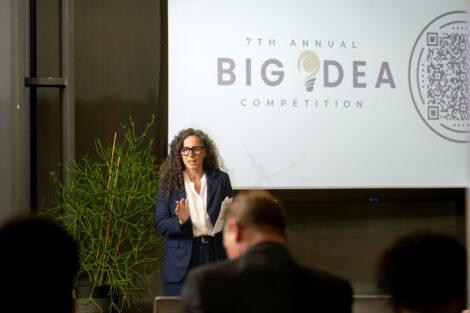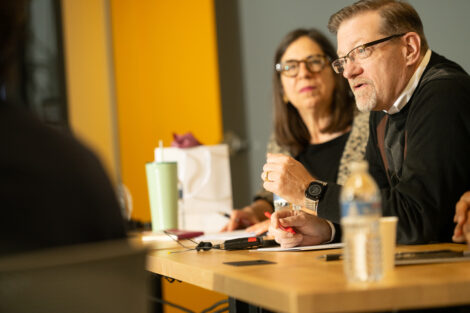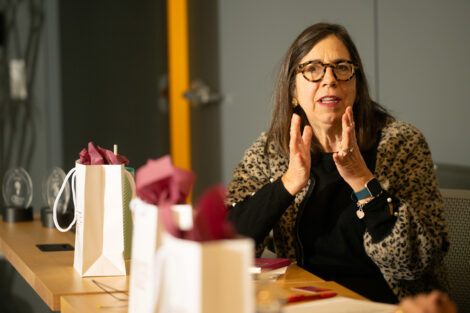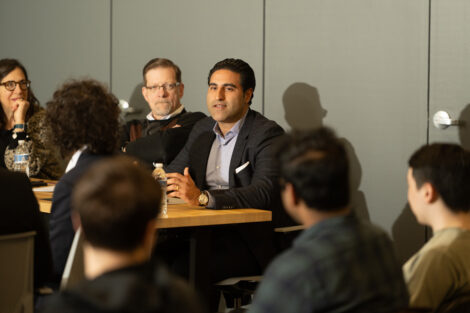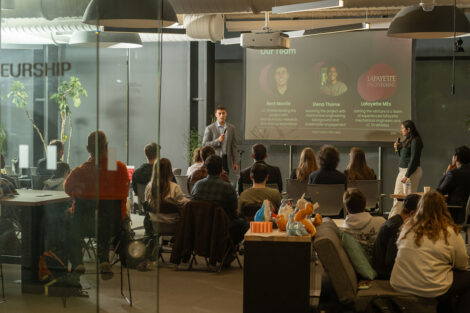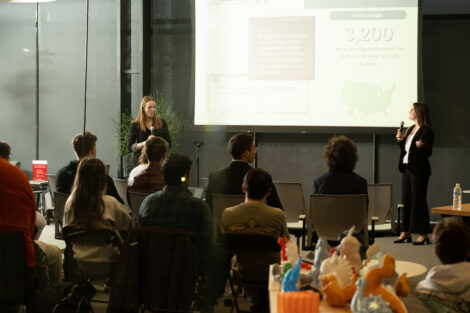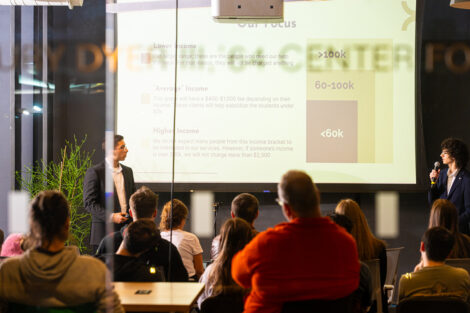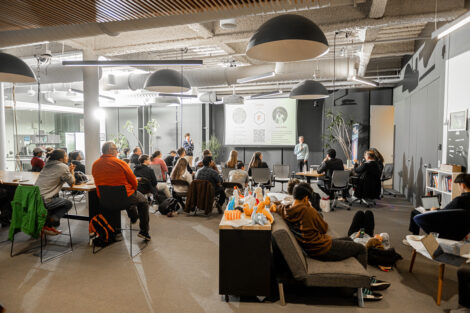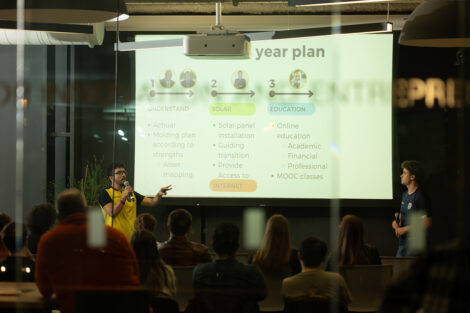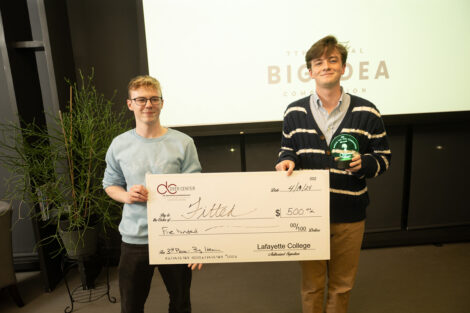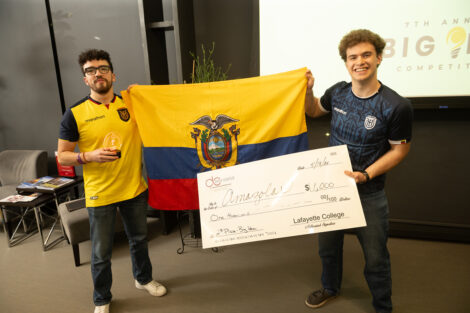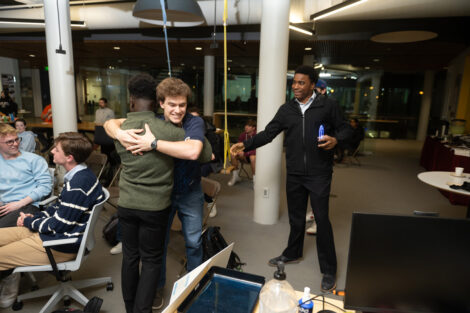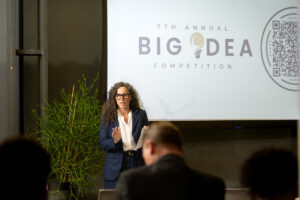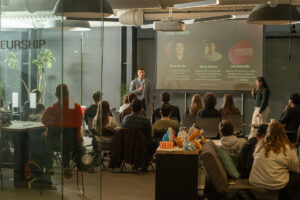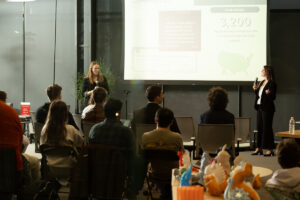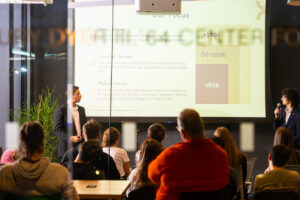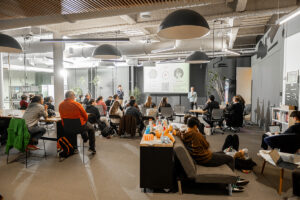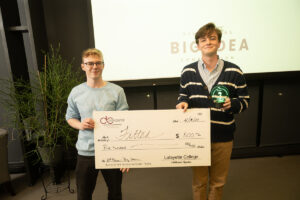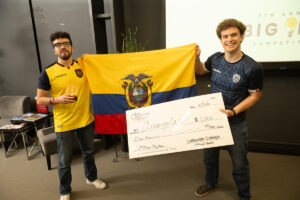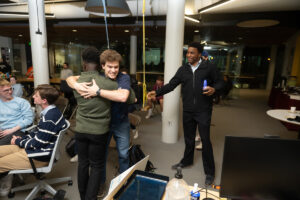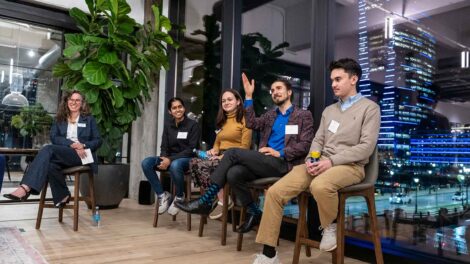Students turn ideas into reality at annual Dyer Center program
By: Madeline Marriott ’24
For trio Eliso Morazara ’25, Kwame Otoo Appiah ’27, and Joshua Williams ’24, winning this year’s Big Idea Competition was about much more than just the recognition—it represented a chance to take their idea from abstract to concrete.
“Our mindset coming in was that we needed help,” Morazara says. “We needed people with experience to guide us.”
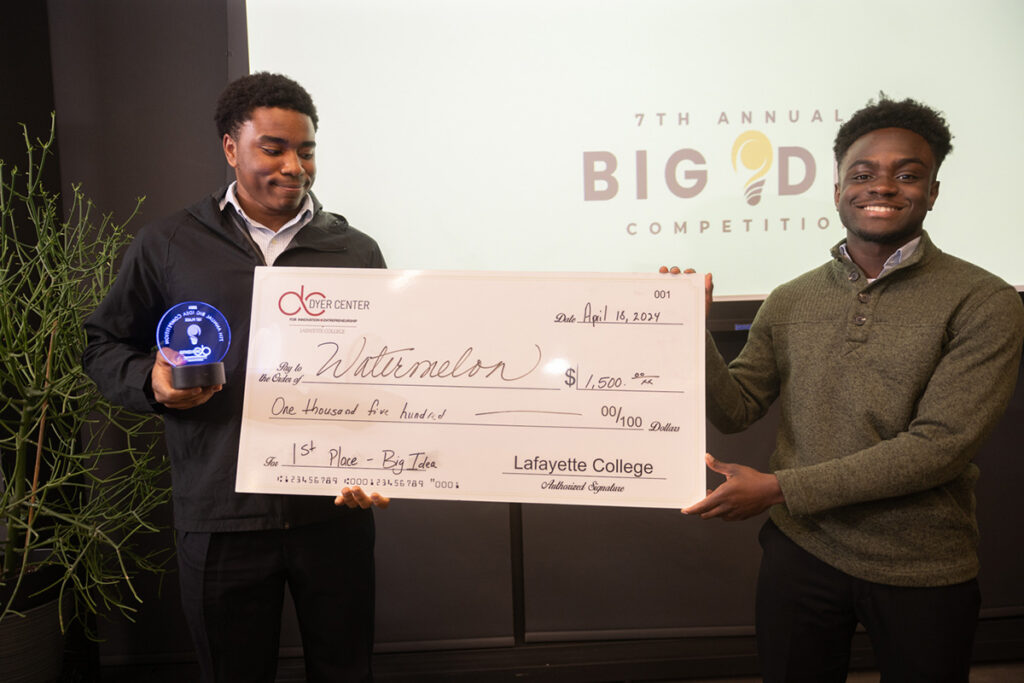
The three budding entrepreneurs—each studying different majors at Lafayette—have been working on their project, a time management and planning app called Watermelon, since November, but the idea has taken shape since teaming up with the Dyer Center.
“Deciding to make this as a project for the pitch competition placed us in a different environment,” Otoo Appiah says. “If we had just decided to do it as a personal project, we wouldn’t have met all the people who decided to come our way to give us advice.”
“Ideas do not come fully developed. They become clearer as you work on them and make mistakes,” Morazara adds. “The best thing to do is to recruit others to work on it with you so you can help each other become better.”
Their app attempts to help students who are struggling with time management by scheduling all of their tasks in one place.
“It’s an app that’s designed to learn how you work at your own pace, and create plans and recommendations on what to do each day and what to do within a work session so that you can finish your assignments,” Otoo Appiah explains.
The competition, which is now in its seventh year, saw applications from 18 student groups this year. Members of the Dyer Center staff chose the top six entries, who were then invited to prepare a presentation for the competition.
Each of these six teams was then paired with an alumni or community mentor who gave them advice about different facets of their business models. According to Rita Chesterton, director of Dyer Center, 25 people volunteered to lend their expertise to the student groups, meaning each could be paired with someone who works in a relevant industry.
“Not only do you have to think about what your business model is and really have that well organized, but then you have to figure out how you are going to communicate that to somebody so they can understand what the value is,” Chesterton says.
“From the alumni, the students learn how to think about a business and all the different parts that need to go into it,” Chesterton continues.
The winning trio was paired with Jamie Proctor ’96, current vice president of product at PayCargo, an online payment platform for the freight and cargo industries.
According to Morazara, Proctor’s advice helped them to refine their presentation, deleting unnecessary details and better tailoring their questions to the purpose of the pitch.
Judges of the competition, including Alex Karapetian ’04, president of Acopian Power Supplies, gave the students ideas that will shape their project moving forward.
“I was quite satisfied with the point when the judges were stating how much potential the app has, how profitable it may be, and also how to implement more features to be more open outside of high school and college students,” Williams says.
